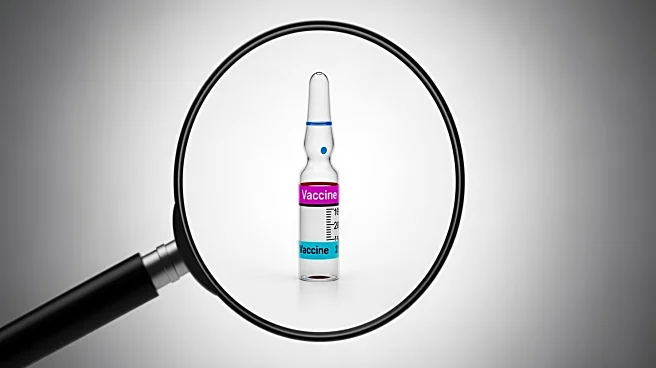What's Happening?
Robert F. Kennedy Jr., a presidential candidate and longtime anti-vaccine advocate, has been the subject of a fact-checking series by FactCheck.org. The series examines Kennedy's history of promoting false and misleading claims about vaccines, autism,
and COVID-19. Despite his insistence that he is not anti-vaccine, Kennedy has been linked to misinformation campaigns that have contributed to declining vaccination rates and public health challenges. The fact-checking series highlights Kennedy's role in spreading health misinformation and the potential consequences for public health.
Why It's Important?
Kennedy's promotion of health misinformation has significant implications for public health and vaccine policy in the U.S. By spreading false claims about vaccines, he risks undermining public confidence and contributing to declining vaccination rates. The misinformation also affects public trust in health agencies and highlights the need for evidence-based policies to protect public health. Critics argue that Kennedy's actions could lead to preventable illnesses and deaths, emphasizing the importance of maintaining scientific integrity in health policy decisions.
What's Next?
The ongoing fact-checking of Kennedy's claims is likely to continue, with potential implications for his presidential campaign and public health discourse. Health experts and policymakers may push for stronger evidence-based policies to counter misinformation and protect public health. The situation underscores the importance of maintaining scientific integrity and transparency in health policy decisions, especially in the face of misinformation and public skepticism.
Beyond the Headlines
Kennedy's promotion of health misinformation raises ethical and legal questions about the role of personal beliefs in public health policy. The reliance on misinformation to challenge established vaccine science could undermine the credibility of health agencies and contribute to public skepticism. The situation highlights the importance of maintaining scientific integrity and transparency in health policy decisions, especially in the face of misinformation and public skepticism.















